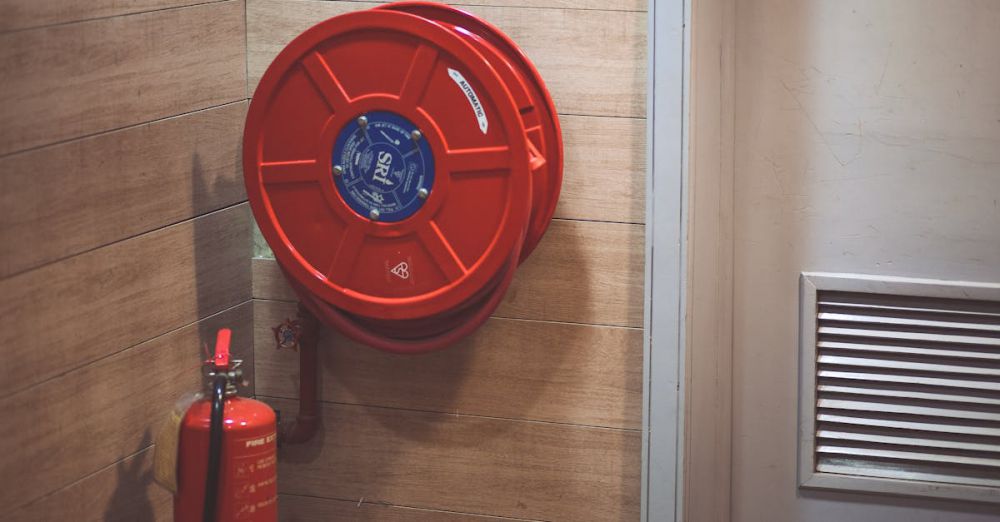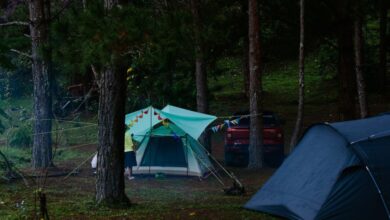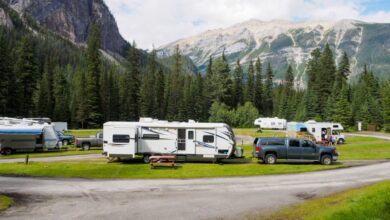How to Stay Safe while Camping
Camping can be one of the most exhilarating ways to connect with nature, offering a chance to unwind from the hustle of daily life. However, it’s essential to prioritize safety to ensure your outdoor experience remains enjoyable. From choosing the right location to understanding wildlife behavior, here are several key strategies to keep you safe while camping.
Selecting a Safe Campsite
Choosing the right campsite is your first line of defense against potential hazards. Look for established campgrounds that are well-maintained and have designated sites. Avoid camping near cliffs or steep drop-offs, as well as low-lying areas that could become waterlogged during rain. It’s also wise to position your tent at least 200 feet away from riverbanks and lakes to avoid flooding and to stay clear of potential landslides. Always check the weather forecast before your trip to avoid unpredictable storms or extreme temperatures.
Understanding Wildlife Precautions
When camping in the wilderness, it’s crucial to be aware of the local wildlife. Animals like bears, raccoons, and snakes can pose risks if not respected. Store food securely in bear-proof lockers or hang it from a tree, at least 10 feet off the ground and 4 feet from the trunk. Never leave food scraps around your campsite, as this can attract unwanted visitors. Familiarize yourself with the types of wildlife in the area and know how to react if you encounter them. For example, if you see a bear, remain calm, avoid direct eye contact, and back away slowly.
Fire Safety Essentials
Fires can enhance your camping experience, providing warmth and a place to cook, but they can also be incredibly dangerous if not handled correctly. Always build your fire in a designated fire pit and keep it small. Before you leave, ensure the fire is completely extinguished by dousing it with water and stirring the ashes. Additionally, familiarize yourself with local fire regulations, especially during dry seasons when fire bans may be in effect. Carry a fire extinguisher or a bucket of water nearby while the fire is burning to quickly extinguish any flames that may get out of control.
Navigating the Terrain
Being mindful of your surroundings is vital when camping. Trails can be uneven and filled with obstacles, so wear sturdy footwear to prevent slips and falls. Always carry a map and compass or a GPS device to navigate unfamiliar terrains. Before embarking on any hikes, inform someone of your planned route and expected return time. This is crucial in case you encounter difficulties and need assistance.
Staying Hydrated and Nourished
Access to clean drinking water is essential while camping. If the campsite lacks potable water, bring enough for your needs or consider water purification methods, such as tablets or filters. Dehydration can sneak up on you, especially in hot weather, so drink regularly. Additionally, plan your meals carefully. Prepare wholesome foods that require minimal preparation, and always pack a first-aid kit, including supplies for treating cuts, scrapes, and insect bites.
Emergency Preparedness
Despite careful planning, emergencies can still arise. Be prepared by creating an emergency plan that includes a way to signal for help, such as a whistle or a mirror. Familiarize yourself with basic first aid and consider taking a wilderness first aid course. Having a fully charged phone or a satellite communicator can also be a lifesaver in remote areas, allowing you to contact emergency services if necessary.
Keeping Connected with Nature
While safety is paramount, don’t forget to immerse yourself in the beauty of nature. Take time to enjoy your surroundings, practice mindfulness, and appreciate the sights and sounds of the wilderness. Establishing a balance between safety and enjoyment can make your camping experience memorable and fulfilling.
Embracing the Adventure
Camping can be an enriching experience when approached with caution and awareness. By taking the necessary safety precautions and being prepared for the unexpected, you can enjoy all that nature has to offer while minimizing risks. Embrace the adventure, and remember that with the right mindset and preparation, camping can become a cherished tradition for years to come.







